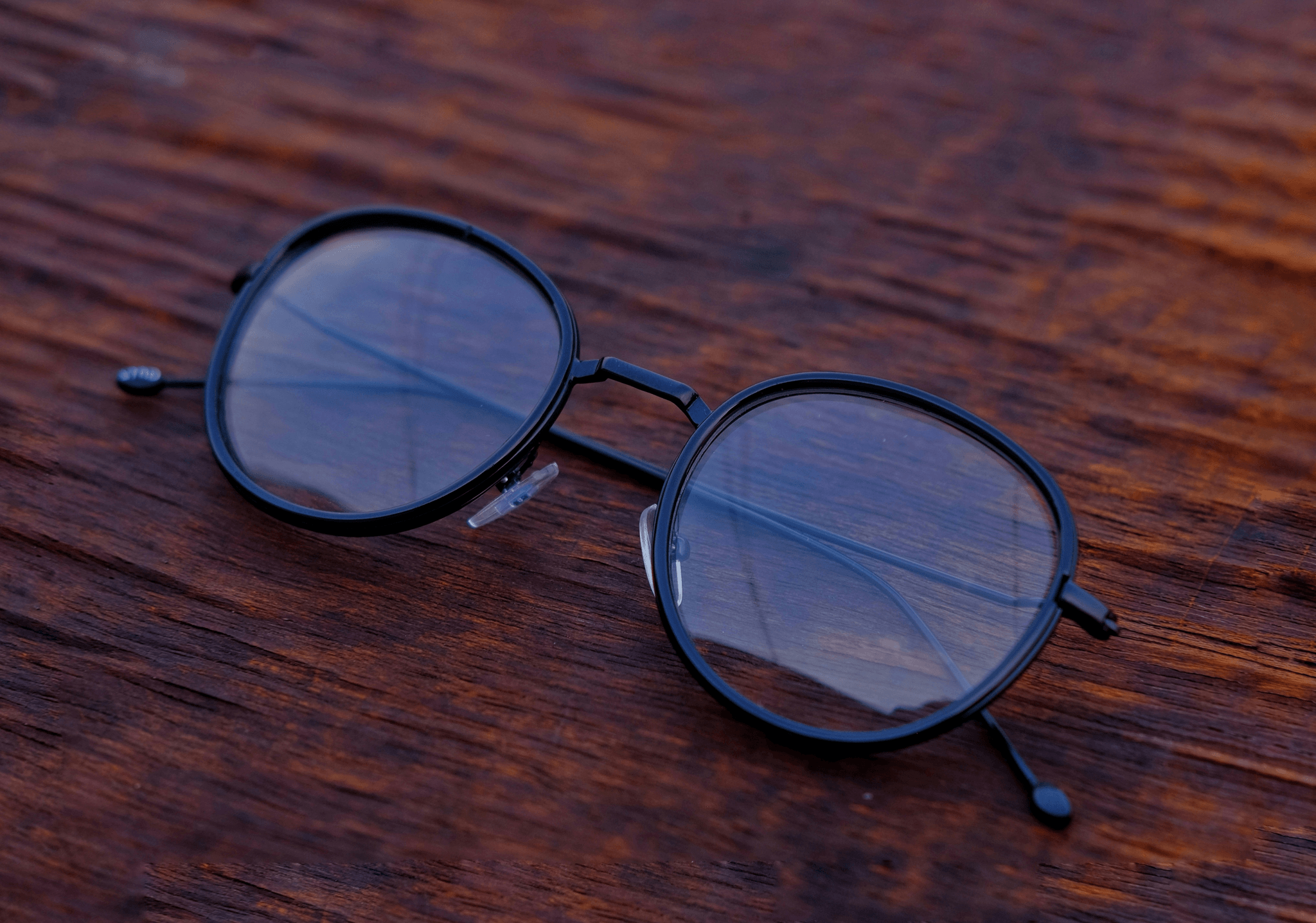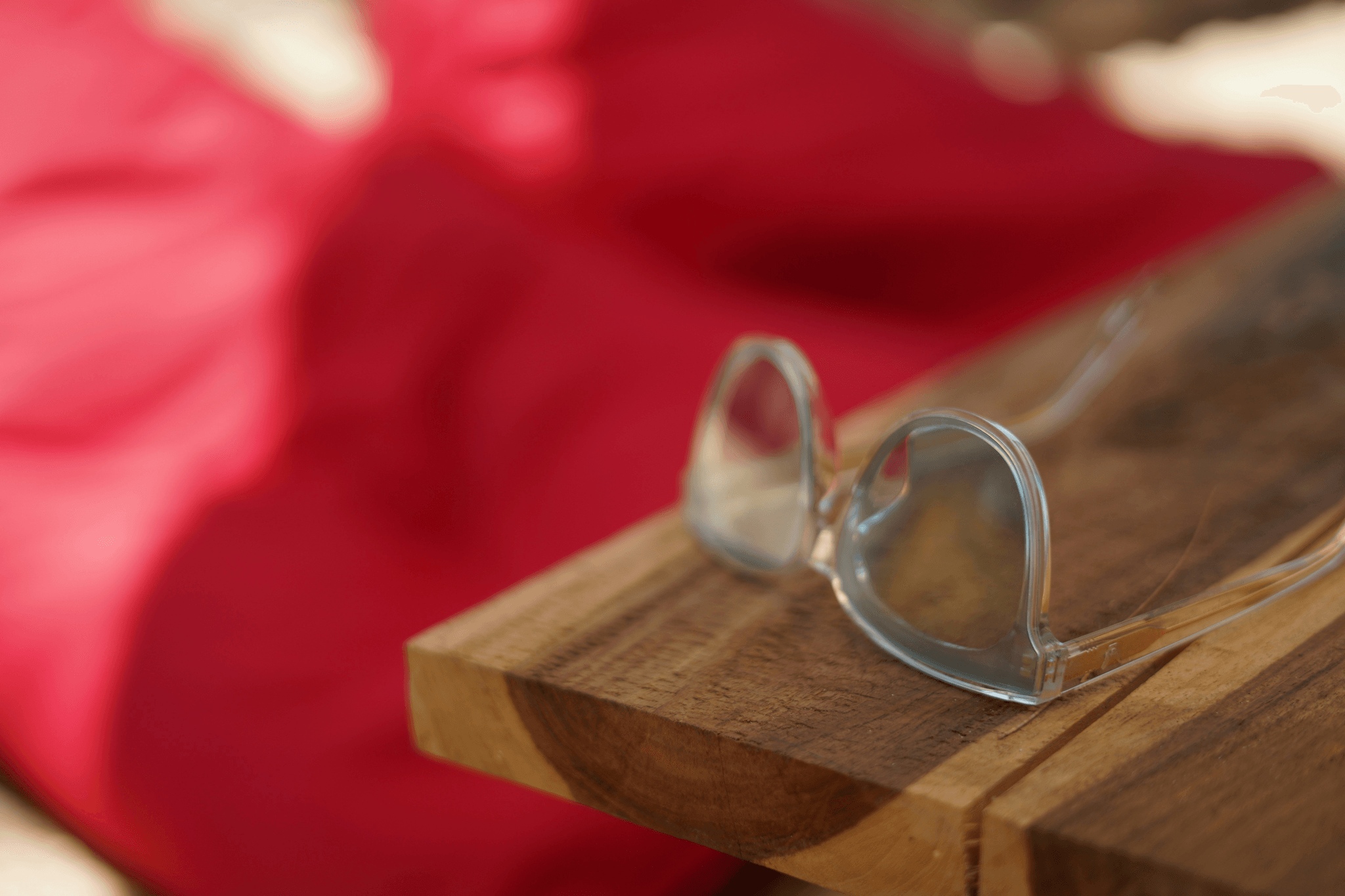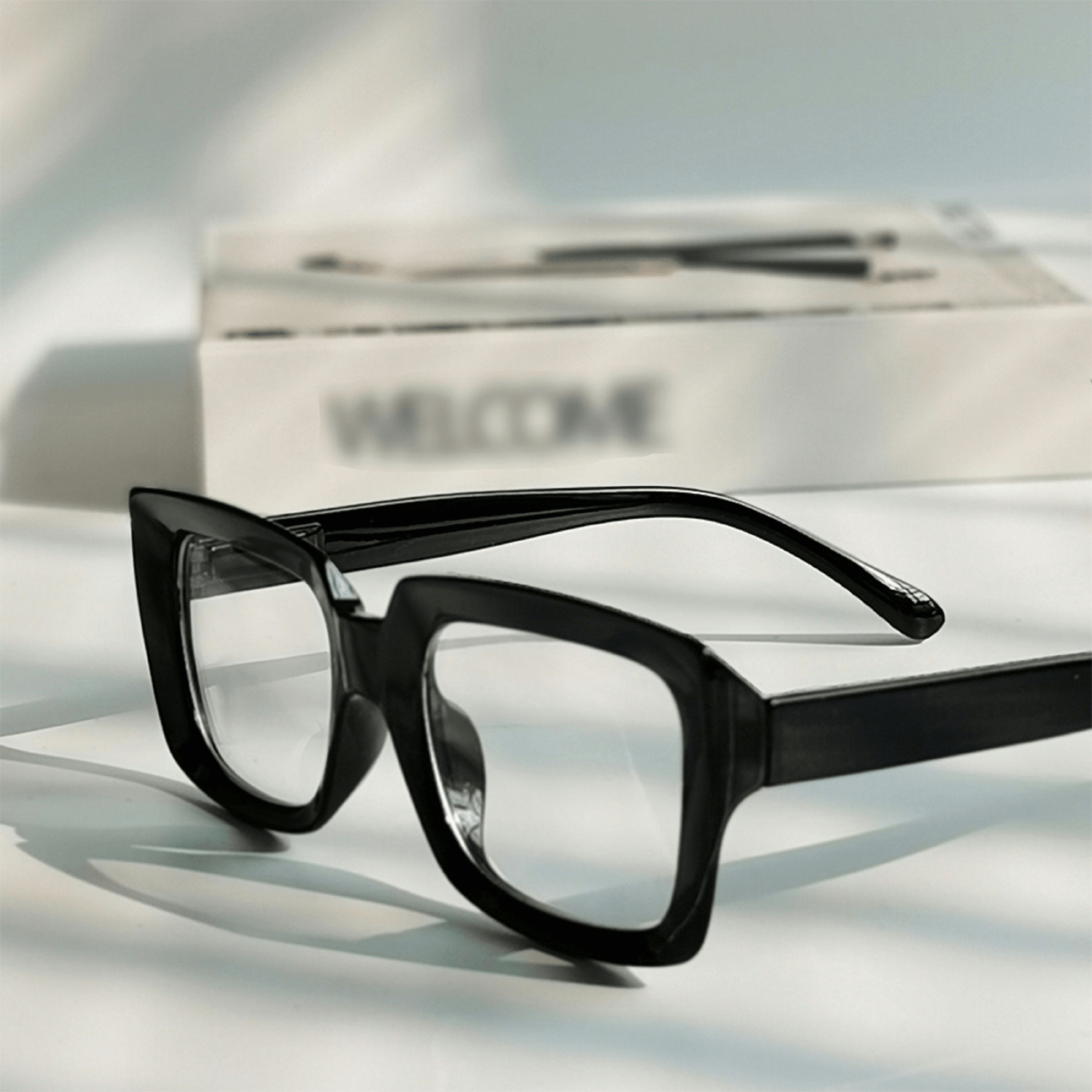Introduction

Choosing the right eyewear is more than just a fashion statement; it's about comfort, durability, and personal style. In the world of eyeglasses, acetate and metal frames stand out as two of the most popular materials. Each offers unique benefits and drawbacks that can significantly impact your overall experience with glasses.
Overview of Acetate and Metal Frames
Acetate glasses are made from a plant-based plastic that provides vibrant colors and patterns, making them a favorite for those looking to express their personality. On the other hand, metal frames are often lauded for their sleek design and lightweight feel, appealing to those who prioritize minimalism in their eyewear choices. Understanding these materials is crucial when deciding between acetate glasses vs metal or even acetate glasses vs plastic options.
Key Differences Between Materials
One major difference between acetate and metal glasses lies in their flexibility and weight; acetate tends to be heavier but offers more color variety, while metal frames are generally lighter yet can be less customizable in terms of design. Additionally, durability varies: while metal frames may withstand rough handling better, they may also come with potential disadvantages such as rusting or bending over time. Questions like Are acetate or metal glasses better? often arise as individuals weigh these factors against personal preferences.
Why Choose the Right Frame Matters
Choosing the right frame is essential not only for aesthetic reasons but also for comfort during daily wear. The fit of your eyeglasses can affect everything from how well you see to how long you can wear them without discomfort—a critical consideration when pondering What are the disadvantages of acetate frames? or What are the disadvantages of metal eyeglass frames? Ultimately, making an informed choice ensures that you enjoy both style and functionality in your eyewear.
The Allure of Acetate Glasses

Acetate glasses have become a popular choice among eyewear enthusiasts, and it's not hard to see why. Known for their vibrant colors and unique patterns, acetate frames offer a level of customization that appeals to many fashion-forward individuals. They provide a lightweight feel without sacrificing style, making them an attractive option in the ongoing debate: are acetate or metal glasses better?
Benefits of Acetate Frames
One of the standout benefits of acetate frames is their versatility. Available in a wide array of colors and designs, they can easily match any outfit or personal style. Additionally, acetate is hypoallergenic, making it an excellent choice for those with sensitive skin who may react to metals; this is particularly relevant when considering what are the disadvantages of metal eyeglass frames? Furthermore, their lightweight nature ensures comfort during extended wear—ideal for anyone who spends long hours in glasses.
Is Acetate Good for Eyeglasses?
When pondering whether acetate is good for eyeglasses, it's essential to consider its durability alongside its aesthetic appeal. While some might question its strength compared to metal options, high-quality acetate can withstand daily wear and tear quite well. However, it’s important to note that there are some disadvantages of acetate frames; they can be more prone to scratches than their metal counterparts but still remain a favored choice among many users.
Popular Brands Featuring Acetate
Several renowned eyewear brands have embraced the charm of acetate glasses vs metal alternatives by offering stunning collections made from this material. Names like Ray-Ban and Warby Parker have made waves with their stylish acetate frames that cater to various tastes and preferences. Additionally, brands such as Oliver Peoples and Moscot showcase unique designs that highlight the beauty of acetate while remaining competitive in the ever-evolving world of eyewear fashion.
The Strength of Metal Frames

Advantages of Metal Eyeglass Frames
One of the standout features of metal eyeglass frames is their strength, which often leads to increased longevity compared to acetate glasses vs metal options. Metal frames are generally more resilient against wear and tear, making them an excellent choice for those who lead an active lifestyle or have children who might inadvertently put their glasses through the wringer. Additionally, many people appreciate the sleek aesthetic that metal offers, allowing for a refined look that can easily transition from casual to formal settings.
Another advantage is the lightweight nature of most metal frames, which can enhance comfort over extended periods of wear. If you're pondering whether acetate or metal glasses are better for your daily use, consider how much time you spend wearing them; lighter materials can significantly reduce discomfort. Plus, many metal frames come with adjustable nose pads and temple arms that allow for a customized fit—a feature not always available with acetate glasses.
Lastly, durability doesn’t mean sacrificing style; in fact, many high-fashion brands have embraced metal designs that incorporate intricate details and finishes. Whether you're drawn to classic stainless steel or trendy titanium options, there's no shortage of stylish choices in the world of metal eyewear. So if you’re wondering if acetate is good for eyeglasses compared to their metallic counterparts—metal may hold its own in both form and function.
What Are the Disadvantages of Metal Eyeglass Frames?
Despite their many advantages, there are some drawbacks associated with metal eyeglass frames worth considering as well—especially when comparing acetate glasses vs plastic or other materials. One primary concern is susceptibility to corrosion; certain metals can rust when exposed to moisture over time if not properly cared for. This means regular maintenance is essential if you want your stylish specs to last.
Moreover, while they may be lightweight overall, some users find specific types of metals can feel colder against the skin than plastic or acetate options—especially during winter months! This could lead some individuals to prefer warmer-feeling materials like acetate when it comes down to personal comfort preferences. Additionally, those with sensitive skin might experience allergic reactions due to nickel content found in some cheaper metals.
Finally, while customization options exist for fit adjustments on most models—if your frame gets bent out-of-shape from rough handling (think: falling off a table), it’s often more challenging to fix than bending back an acetate frame without causing damage! Thus understanding what are the disadvantages of metal eyeglass frames before making your purchase decision is crucial.
Notable Brands Offering Metal Frames
If you've decided that you lean towards choosing sturdy yet fashionable eyewear made from durable materials like metals—you'll be pleased by how many reputable brands offer fantastic selections! Notable names such as Ray-Ban provide classic styles featuring high-quality metals known for both reliability and timeless appeal—perfect companions whether you're donning casual attire or dressing up!
Another brand worth mentioning is Warby Parker—a company recognized not only for its chic designs but also commitment towards sustainability practices within their manufacturing processes! They feature various frame styles made from lightweight metals designed specifically with user comfort in mind—a great option if you're still weighing whether acetate or metal glasses are better suited for you!
Finally—if you're looking at luxury choices—the likes of Prada offer stunning metallic designs adorned with intricate detailing sure enough catch anyone's eye! With so much variety out there across different price points—it’s easy finding something perfect regardless if you prefer minimalist elegance over bold statements!
Comparing Comfort and Fit

When it comes to choosing between acetate and metal glasses, comfort and fit play crucial roles in the decision-making process. Many users often wonder, Are acetate or metal glasses better? The answer isn't straightforward, as both materials have unique attributes that cater to different preferences. Acetate glasses are known for their lightweight feel and flexibility, making them a popular choice for those who prioritize comfort throughout the day.
Are Acetate or Metal Glasses Better?
The debate over whether acetate or metal glasses reigns supreme is ongoing. Acetate frames often provide a snug fit with their adjustable nose pads, which can be particularly beneficial for those with sensitive skin or unique facial contours. However, some might argue that metal frames offer superior durability and a sleek aesthetic that can enhance professional attire—yet they can also be heavier on the nose.
While discussing the question of What are the disadvantages of acetate frames? it's essential to note that they can sometimes lack the sturdiness of metal options. Additionally, extreme temperatures can warp acetate more easily than metal, which raises concerns about long-term wear in varying climates. Ultimately, personal preference plays a significant role; some may favor the lightweight nature of acetate over the robust structure of metal.
Customization Options in Acetate and Metal
Customization is another vital aspect when comparing acetate glasses vs metal options. Acetate frames come in an array of vibrant colors and patterns, allowing wearers to express their individuality through their eyewear choices. This versatility makes them particularly appealing to fashion-forward individuals looking to make a statement.
On the other hand, while metal frames may not boast as many color choices as acetate glasses vs plastic alternatives do, they often offer customizable features like adjustable temples for personalized fit adjustments. Brands specializing in both materials frequently provide options for engraving or embellishments on metal frames too—adding a touch of uniqueness without compromising durability.
In essence, whether one opts for customized acetate or tailored metal designs depends largely on style preferences and practical needs.
User Experiences and Testimonials
User experiences reveal interesting insights into how individuals feel about their choice between acetate and metal glasses. Many enthusiasts rave about how comfortable acetates are for all-day wear—often describing them as “like wearing air.” However, some users have reported issues with scratches on their lenses due to softer materials used in certain acetates.
Conversely, testimonials from fans of metal eyeglasses highlight their longevity and sleek aesthetic appeal but also caution against potential discomfort from heavier designs over time—especially if worn during extended periods without breaks. When considering What are the disadvantages of metal eyeglass frames? it’s clear that while they may offer strength against daily wear-and-tear, they could sacrifice comfort if not fitted correctly.
In conclusion, personal experiences vary widely; thus trying both types before committing is advisable!
Durability Showdown: Acetate vs Metal

What Are the Disadvantages of Acetate Frames?
While acetate frames are often celebrated for their vibrant colors and stylish designs, they do come with some drawbacks. One significant concern is their susceptibility to heat; excessive exposure can cause warping or deformation, rendering them less reliable in hot climates. Additionally, acetate frames can be prone to scratches and may not withstand heavy impact as well as metal glasses, leading some to wonder, What are the disadvantages of acetate frames?
Longevity of Metal Frames
On the flip side, metal frames have a reputation for longevity that is hard to beat. Typically made from materials like stainless steel or titanium, they offer exceptional strength and resilience against everyday wear and tear. This durability means that many users find themselves asking if Is acetate good for eyeglasses? when considering how long they want their eyewear to last; metal frames often outlast their acetate counterparts.
Maintenance and Care Tips
Regardless of whether you choose acetate or metal glasses, proper maintenance is crucial for extending their lifespan. For acetate glasses vs metal care routines, it's essential to clean both types regularly with a microfiber cloth and lens cleaner to avoid scratches or smudges. However, while metal frames might require occasional tightening of screws due to wear over time, acetate frames benefit from being stored away from heat sources to prevent warping—making care tips vital in ensuring your eyewear remains stylish and functional.
Style and Fashion Trends

Eyewear has become more than just a vision correction tool; it's a fashion statement that reflects personal style. When comparing acetate glasses vs metal, preferences often hinge on aesthetics, comfort, and the vibe one wants to convey. Some may argue that acetate offers a bolder look with its vibrant colors and patterns, while others might lean towards the sleek sophistication of metal glasses.
Acetate Glasses vs Metal: Style Preferences
The debate over whether acetate or metal glasses are better often comes down to individual style. Acetate frames tend to be available in a wider variety of colors and designs, making them perfect for those who want to express their personality through their eyewear. On the flip side, metal eyeglass frames are typically associated with a more minimalist aesthetic, appealing to those who prefer understated elegance.
While both materials have their charm, it’s essential to recognize the unique advantages each brings to the table. Are acetate or metal glasses better for you? If you're someone who loves bold fashion choices, acetate might be your go-to; however, if you favor versatility and durability in your accessories, metal could be your best bet.
Celebrity Endorsements of Acetate and Metal Frames
Celebrities play a significant role in shaping eyewear trends with their fashion choices—and they seem divided between acetate and metal glasses. Stars like Johnny Depp often sport striking acetate frames that accentuate their eclectic styles. Meanwhile, more classic figures like Cate Blanchett frequently choose sleek metal designs that enhance their sophisticated looks.
These endorsements highlight how both acetate and metal can cater to different personas within the celebrity world. The question remains: what are the disadvantages of acetate frames compared to their metallic counterparts? While celebrities may make these choices look effortless, understanding these nuances helps consumers make informed decisions about what fits best into their own wardrobes.
Seasonal Trends in Eyewear
Fashion trends evolve with the seasons, and eyewear is no exception—both acetate glasses vs plastic options and metal frames are constantly being reimagined by designers each year. In spring and summer months, you'll often see bold colors in acetate frames that capture the essence of sunshine and vibrancy; think bright reds or floral patterns! Conversely, during fall and winter seasons, muted tones in both materials emerge as staples for those looking for warmth in style.
As we keep an eye on seasonal trends in eyewear throughout 2023-2024, it's clear that both materials have something unique to offer every season's palette. Whether you're drawn toward eye-catching acetates or prefer subtle metallics during colder months—what are the disadvantages of metal eyeglass frames? Understanding these trends can help inform your next purchase while keeping your style fresh all year round.
Conclusion

Choosing the right eyewear is more than just a fashion statement; it’s about comfort, durability, and personal style. By weighing the pros and cons of acetate and metal glasses, you can make an informed decision that suits your lifestyle. Remember, the best frame is one that not only enhances your appearance but also meets your daily needs.
Making an Informed Choice for Eyewear
When considering whether acetate or metal glasses are better for you, it's essential to evaluate your specific requirements. Acetate frames offer a lightweight feel and vibrant colors, while metal glasses provide strength and a sleek aesthetic. Understanding what are the disadvantages of acetate frames—such as potential brittleness—and what are the disadvantages of metal eyeglass frames—like susceptibility to corrosion—will guide you in making a choice that aligns with your lifestyle.
Daposi’s Role in Eyewear Manufacturing
Daposi plays a pivotal role in bridging the gap between style and functionality in eyewear manufacturing. With a commitment to quality materials, they produce both acetate and metal glasses that cater to diverse consumer preferences. Whether you lean towards the bold look of acetate glasses vs plastic or prefer the refined elegance of metal frames, Daposi ensures each pair meets rigorous standards.
Final Thoughts on Acetate and Metal Glasses
In summary, both acetate and metal glasses have their unique advantages that cater to different tastes and needs. Is acetate good for eyeglasses? Absolutely! However, if you're looking for something robust with longevity, exploring metal options might be worthwhile too. Ultimately, whether you choose acetate glasses vs metal comes down to personal preference—so try them on and see which feels like home!
